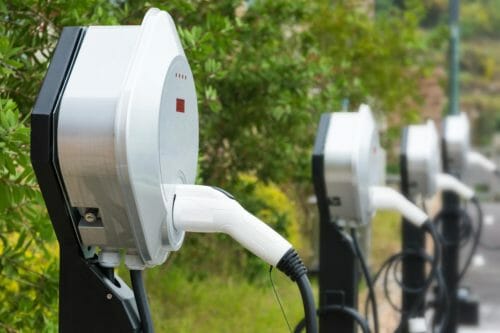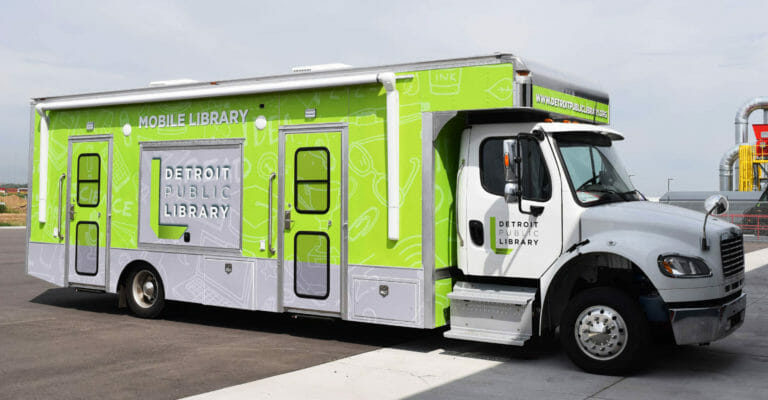Alternative Fuel
Everything You Need to Know About Alternative Fuel Vehicles
July 19, 2021

Over the years, the options for alternative fuel vehicles have continued to grow. As technology has improved, the ability to use alternative fuel to travel long distances has also increased, making this a more viable option for industries that need to do more than simply get across town.
With the rise of alternative fuel vehicle options, many business owners and fleet managers are interested in exploring a custom upfit. If you are interested in an alternative fuel vehicle, it all begins with understanding how these vehicles work and what your options are for a specialty build.
What is an Alternative Fuel Vehicle?
Simply put, an alternative fuel vehicle is any vehicle that uses a type other than conventional fuel to operate. These vehicles are designed to reduce the reliance on conventional fuels and lower emissions.
Common alternative fuels include all of the following:
- Biodiesel
- Electricity
- Ethanol
- Hydrogen
- Natural Gas
- Propane
In many cases, an alternative fuel vehicle will use a hybrid system which allows it to use multiple fuels. For example, an electric hybrid vehicle can use both conventional fuel and electricity to run, allowing it to travel long distances without the fear of running out of power.
The most common type of alternative fuel vehicles are gas-electric hybrids, electric vehicles, and natural gas vehicles. Government and private-sector vehicle fleets are the primary users of alternative fuel vehicles, as the use of these vehicles can help reduce fleet costs over time.
The Benefits of an Alternative Fuel Vehicle
Converting a vehicle to use an alternative fuel comes with an upfront cost. However, many businesses and government sectors are equipping their fleets with alternative fuel vehicles due to the array of benefits these vehicles offer, including all of the following:
- Significantly lower operational costs: It is no mystery that gasoline and diesel are high-cost line items. Switching to alternative fuel can allow companies to cut down on these costs, lowering overall operational spending.
- Environmental friendliness: One of the number one reasons that more and more companies are investing in alternative fuel vehicles is because of the benefits these vehicles provide to the environment. Through lowered emissions and less use of conventional fuels, businesses can have a positive impact on the planet.
- Federal, state, and local incentives: Depending on where a business is located, numerous incentives may exist for making a switch to alternative fuel vehicles. By using the U.S. Department of Energy’s incentive search tool, companies can locate all available incentives.
The Types of Vehicles that Can Use Alternative Fuel
While early technologies limited which vehicles could use alternative fuel effectively, almost any vehicle type can implement the use of alternative fuels today.
There are many all-electric and hybrid chassis readily available that can be upfit for a range of medium and light-duty applications, including the following:
- Ford Transit Vans
- Ford E & F Series medium-duty chassis
- GM Low Cab Forward medium duty chassis
- Winnebago Commercial
The Industries that Use Alternative Fuel Vehicles
While alternative fuel vehicles can be used for almost any purpose, the following are all common applications for these vehicles:
- Mobile Medical: From bloodmobiles to COVID-19 testing sites, many mobile medical vehicles implement the use of alternative fuel to operate the vehicle and to keep its equipment running when the vehicle is parked.
- Bookmobiles & Outreach Vehicles: Operating as part of the government sector, libraries and outreach centers often choose to invest in hybrid vehicles to lower operational costs and to increase their positive impact on the community.
- Government: In many cases, government departments, such as parks and recreation or city services, will switch to an all alternative fuel fleet. This can help the department cut down on operational costs while also receiving available incentives.
Creating a Custom Alternative Fuel Vehicle with Summit Bodyworks
The good news is that when you opt to switch to an alternative fuel vehicle, you aren’t opting out of your customization choices. In fact, starting with a hybrid or all-electric chassis doesn’t need to limit anything about the layout of your vehicle or the equipment included. Extra power features can be added to ensure that equipment can continue to operate even when the vehicle is not in motion.
At Summit Bodyworks, we can help you create an alternative fuel vehicle that still meets all your specific needs.
For example, check out a recent customization we created for UCLA Health Center. This mobile medical unit is a zero-emission unit and was built from an all-electric Winnebago shell. We upfit the vehicle to include all the equipment and supplies necessary for the UCLA Health team to collect, repair, and sterilize surgical suite instruments on the go.
This unique build allows the team to travel between campuses, without the high overhead cost of conventional fuel.
If you are interested in adding an alternative fuel vehicle to your fleet, or you want to upfit your entire fleet to include only alternative fuel vehicles, we are here to help. We will begin by walking through your available options and outlining the benefits of each chassis type. From here, we can work with you to design a layout that will meet your team’s needs. After that, we will get to work designing the perfect vehicle for your needs.
The end result is that your team can enjoy the benefits of an alternative fuel vehicle paired with the advantages of a custom upfit. Reach out today to learn more.


